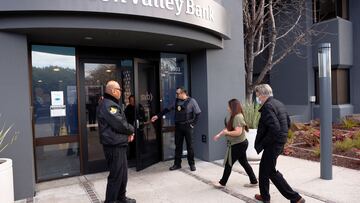What is the FDIC? How does it protect banks and deposits?
The closure of Silicon Valley Bank had depositors worrying about whether they would get their money back. What kind of protection does the FDIC provide?


The collapse of Silicon Valley Bank last week had its depositors worried about getting their money back. The FDIC can help them, but what exactly can the organization do?
What is the FDIC?
The Federal Deposit Insurance Corporation is an independent U.S. government agency that provides insurance to depositors in case of bank failure. It was created in the wake of the Great Depression of 1929, when the commercial banking system collapsed and left customers holding the bag. The corporation’s creation was part of government reforms to protect the financial system.
BREAKING: The FDIC Has Named Fmr. Fannie Mae CEO Tim Mayopoulos as the New CEO of Silicon Valley Bank
— Chief Nerd (@TheChiefNerd) March 13, 2023
pic.twitter.com/Vz5sk3vYp7
How does the FDIC protect banks and deposits?
The FDIC’s main role is to protect bank customers by insuring their deposits in the event that their bank fails. Their funds come from banks and savings associations, who pay insurance premiums in compliance with laws and regulations requiring banks to be FDIC-insured. However, there is a limit to the coverage that FDIC can provide. The agency insures deposits for up to a maximum of $250,000 per customer, per bank. This reassures clients that they can still have their money back, but within limits.
In the case of Silicon Valley Bank, clients had been worried because the FDIC would not be able to provide protection for those who had more than $250,000. The Biden administration responded by reassuring customers that they would have access to all their money and that taxpayers would not bear the losses incurred by the bank’s closure.
Keeping an eye on banks
Related stories
The FDIC also works to ensure that banks are complying with laws and regulations. They are tasked with supervising and regulating them, as well as conducting examinations, to make sure their systems are safe and sound. The agency is supposed to take corrective action when they deem it necessary.
When a bank fails, the FDIC takes over as its receiver. This means that they will take over the bank’s assets and liabilities, and should protect the interest of the depositors and other creditors of the bank. The receiver makes sure that the failed bank’s assets are liquidated in an organized and efficient manner, so that its debts can be paid off.

